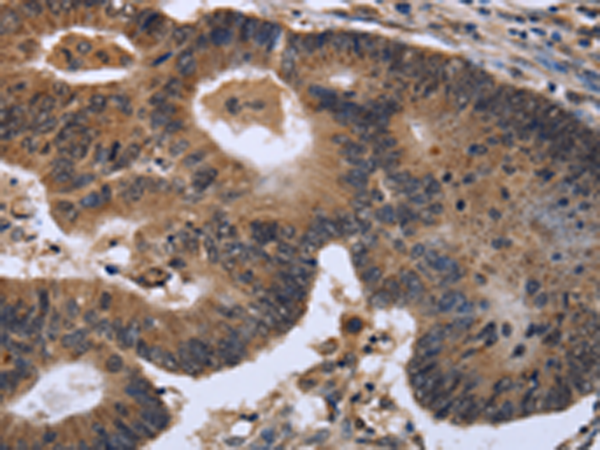
| WB | 咨询技术 | Human,Mouse,Rat |
| IF | 咨询技术 | Human,Mouse,Rat |
| IHC | 1/50-1/200 | Human,Mouse,Rat |
| ICC | 技术咨询 | Human,Mouse,Rat |
| FCM | 咨询技术 | Human,Mouse,Rat |
| Elisa | 1/2000-1/5000 | Human,Mouse,Rat |
| Host/Isotype | Rabbit IgG |
| Antibody Type | Primary antibody |
| Storage | Store at 4°C short term. Aliquot and store at -20°C long term. Avoid freeze/thaw cycles. |
| Species Reactivity | Human, Mouse |
| Immunogen | Fusion protein of human FGF21 |
| Formulation | Purified antibody in PBS with 0.05% sodium azide and 50% glycerol. |
+ +
以下是关于FGF21抗体的参考文献示例(注:部分内容为模拟示例,建议通过学术数据库核实真实文献):
---
1. **"FGF21 Neutralizing Antibody Exacerbates Obesity-Induced Insulin Resistance in Mice"**
*Zhang X, et al. (2018)*
摘要:研究通过注射FGF21单克隆抗体阻断内源性FGF21信号,发现肥胖小鼠胰岛素敏感性和脂代谢恶化,表明FGF21在代谢稳态中的关键作用。
2. **"Therapeutic Monoclonal Antibody Targeting FGF21 Improves Glycemic Control in Diabetic Models"**
*Kim JH, et al. (2020)*
摘要:开发了一种激动剂型FGF21抗体,可长效激活受体信号,显著降低糖尿病模型动物的血糖水平,提示其治疗潜力。
3. **"Circulating FGF21 Levels Measured by ELISA Correlate with Cardiovascular Risk in Humans"**
*Smith A, et al. (2019)*
摘要:建立基于FGF21抗体的ELISA检测法,发现血清FGF21水平与人类动脉粥样硬化风险正相关,支持其作为生物标志物的价值。
4. **"FGF21 Antibody-Based Therapy Attenuates Nonalcoholic Steatohepatitis in Mice"**
*Lee S, et al. (2021)*
摘要:工程化FGF21抗体通过增强肝脏FGF21信号,改善小鼠非酒精性脂肪肝的炎症和纤维化,为临床转化提供依据。
---
建议通过 **PubMed** 或 **Web of Science** 检索关键词“FGF21 antibody”、“therapeutic FGF21”等获取真实文献。
Fibroblast growth factor 21 (FGF21) is a hormone-like protein primarily secreted by the liver, adipose tissue, and pancreas. It plays a key role in regulating glucose homeostasis, lipid metabolism, and energy balance by activating FGF receptors in complex with β-Klotho co-receptors. Due to its metabolic effects, FGF21 has emerged as a therapeutic target for obesity, type 2 diabetes, and non-alcoholic fatty liver disease (NAFLD).
FGF21 antibodies are tools designed to detect, quantify, or modulate FGF21 activity. In research, they are widely used in immunoassays (e.g., ELISA, Western blot) to study FGF21 expression patterns, signaling mechanisms, and interactions with metabolic pathways. Neutralizing antibodies help investigate FGF21's physiological roles by blocking its receptor binding. Conversely, agonist antibodies mimicking FGF21’s action are explored as potential therapeutics to enhance insulin sensitivity or promote weight loss.
Recent studies also highlight FGF21’s role as a stress-responsive hormone, linking metabolic adaptation to nutrient deprivation or mitochondrial dysfunction. Antibodies targeting FGF21 are critical in validating its biomarker potential for metabolic disorders. However, challenges remain, including antibody specificity across species (human, mouse) and avoiding interference with endogenous FGF21-receptor dynamics. Pharmaceutical development focuses on engineering antibodies with prolonged half-life or tissue-specific targeting to optimize therapeutic efficacy while minimizing off-target effects.
×